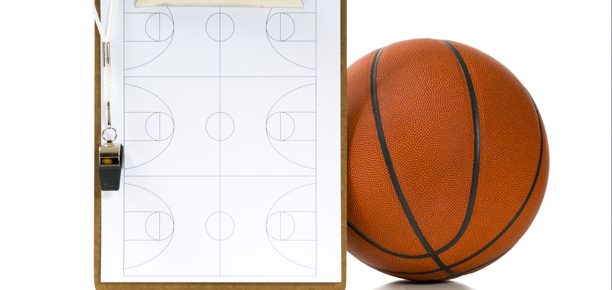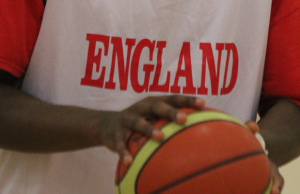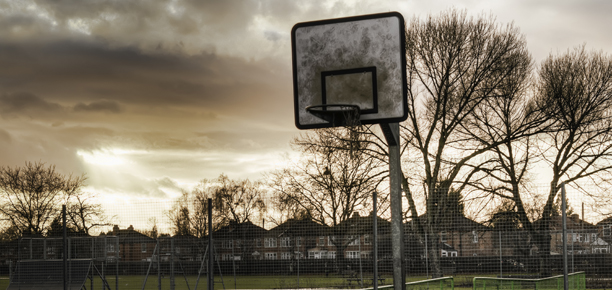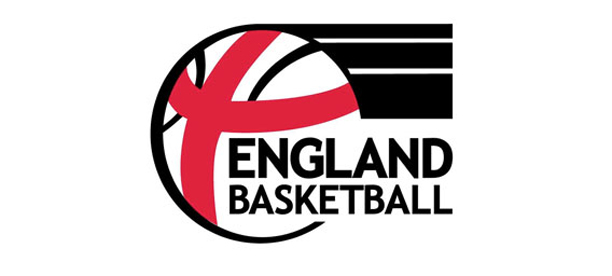Coaching in the UK Needs a “Radical Overhaul”

Words by Roy Packham
In my previous article titled The State of the Game, I suggested that coaching might be one reason for the present low standard of basketball found in this country, at both senior and, particularly, junior level.
I would say at the outset that I believe it is vitally important to produce good junior (club) coaches. We have to improve the standard of senior club coaches of course, but it is at a junior level that players develop their skills, techniques, and habits. Good and bad habits have one thing in common, they are both difficult to get out of, and the same applies to skill and technique, so it is vitally important that the correct skills and techniques are taught, and taught correctly, at as early a time as possible.
Over the past 10 years there has been little improvement in the standard of coaching in England, a fact I believe can be confirmed by simply looking at the little progression in standard of play in the junior leagues, the BBL and the mediocre results achieved by our national teams.
There have been published numerous coaching documents, suggested “performance pathways”, themes of emphasis, basic skills lists and areas of emphasis, all of which have, more or less, said exactly the same thing and I understand yet another set of guidelines is about to be published. However, these have done little to improve coaching standards. Why?
The ultimate responsibility for coaching standards is, presently, the EB’s Office of Coaching Development and it has many questions to answer as to what it has done or is doing to raise not only the coaching standards but also the profile and earning opportunities of its coaches and just why there has been no significant increase in coaching standards.
For perhaps 95% of his or her time, a coach has to be a teacher. He or she has to teach all the basic individual and team fundamentals. It is for the other 5% of the time, that the coach really has to be a coach, that is, when coaching games; seeing and recognizing situations as they develop and taking appropriate action to try and win, making correct substitutions, knowing when and when not to take a Time Out and so on.
It is here there is a paradox. If it is the poor playing standard of basketball that prevents coaches gaining experience, then, how can coaches themselves improve to eventually help improve the playing standard?
There are two main schools of thought appertaining as to what should be required from coaches. In the United States, the almost only requirement is to have experience. Many of the country’s foremost coaches have probably all played the game, but may well not have any qualifications in such areas as sports psychology, nutrition, motivation, and so on. Anybody who wants to become a coach has countless opportunities to learn by starting for example at a high school or college level as an assistant/graduate assistant coach to, hopefully, eventually being appointed as a head coach.
In Europe, basketball is not so well developed, there is no high school/college system, and basketball is totally club based. A person who wants to coach has to become a member of a club and coach a club team. The overall standard is lower than in the United States and it is more difficult to gain experience. As a result nearly all European countries have a system of coaching licenses that must be acquired by anyone who wants to be a coach.
How many English coaches have we had, or do we have, who can stand alongside coaches from, say, Spain, Greece, Serbia? Why are there so many more good coaches abroad than in England? How did they all manage to acquire their knowledge and success?
Well, if one compares what coaches from Serbia and Spain have to do to obtain their coaching licenses1, the previous question may be answered; one can see that the requirements are far more stringent.
At present the Association organizes various grades of coaching courses and these are certainly useful in that they encourage people to undertake and gain qualifications, but how many attend these courses to gain a qualification for their C.V., rather than to eventually become coaches of league basketball teams or clubs?
There are at present three primary levels of coaching qualification.
Level 1 is for “those who wish to commit (?) to basketball. With this award one may only assist a coach who has a Level 2 award.” (The question mark is mine)
The Level 2 award “is the standard level of coaching qualification for all club coaches working at local and junior national league level who wish to commit to coaching basketball. The award gives an overview of coaching styles and the skills and techniques of basketball.”
The Level 3 award “is the advanced level of coaching qualification and is suitable for coaches working with all standards of players.”
If these courses are obligatory to coach at any specific level, as they are supposed to be, there is nothing to be found on the EB web site that defines this obligation.
Having been an assessor I know that these courses are somewhat basic, and are not particularly demanding. I reiterate that if the overall standard of coaching is to improve, most especially at a junior level, then far more stringent requirements must be demanded from coaches.
How well and how often does the Administration monitor its course assessors and the courses themselves, how often does it monitor the performance of those who coach at any club level, and does it ensure that all coaches hold the correct award qualification. How many BBL coaches (or even National team coaches) presently hold the Level 3 coaching award, as supposedly required? (As I will suggest later, this should arguably be the responsibility of the Basketball Coaches Association – BCA) 2
Having both assessed and attended many assessing courses I know that the published syllabi are by no means correctly followed or taught. For example, although the Level 2 syllabus requires a 4 to 6 week interval between module 5 and module 6, this is often ignored and the complete award is run over consecutive days. Modules are not correctly adhered to and the individual course syllabus is as defined by the course tutors. There should also be a final, external, assessment of 20 minutes, but this is invariably done internally thus giving the possibility of biased assessments.
Many Level 2 course assessors themselves only hold the Level 2 award, some having held the award for a very short period of time and are not very experienced in [game] coaching at a club level. This must give rise to questioning the validity and quality of awarded qualifications.
Surely, to assess at Level 2, an assessor should have held the Level 3 qualification for a minimum period of time and, most importantly, to have coached at a (senior?) club level for a minimum period of time?
Unlike European qualifications, there is no defined time limit placed upon coaches before allowing them to take a higher level qualification. I have assessed coaches taking their level 2 qualifications who have only held their level 1 qualification for a matter of months, have never coached at any club level and thus have gained no experience whatsoever of coaching. In theory at least, this means a coach could go from Level 1 to Level 3 in the course of one year. Quite ridiculous?
If the syllabi of the various courses are closely examined, it can be seen that there is a very definite need for revision and improvement. For example in Level 2, there is little correlation between the four suggested phases and the nine unit modules, and the modules themselves are very poorly defined, this being yet another reason for the very varying standards of awarded qualifications.
The coaching qualifications in European countries have been devised and developed over many years by very highly qualified and experienced coaches and it is possible to take coaching qualification up to degree level. . There are very well defined coaching progression routes that enable and, most importantly, encourage coaches to work in basketball and give them a means by which they can earn a living. This does not exist and has never existed in England.
Additionally in European countries, there is very close co-operation between the Association and the relevant Coaching Association, which is not the case in England where the BCA is almost totally ignored. 2
As an example, various surveys were carried out by a number of highly qualified coaches who were, at that time, members of the BCA. These surveys, together with reports outlining detailed recommendations to encourage coaches and develop coaching standards, and giving suggestions as to the content of courses, training programs, defining progression paths, and possible remuneration methods etc., were all submitted to the Association. Unfortunately no comments or replies were received back, and all the recommendations were almost totally ignored.
The European Basketball Associations and their particular Coaching Associations work extremely closely together in organizing courses, lectures, clinics etc., (many of which are obligatory). All coaches must be members of their relevant coaching association as well as holding the correct license from their Basketball Association to coach at any level.
To have coaches who can compare to those in Europe it is essential that a very radical overview of what is required by, and demanded from, all coaches, at all levels, is undertaken and to have any meaningful control over the performance and control of coaches, I would suggest that it should be mandatory for all club coaches throughout the county to be subscribed members of the BCA and to be permitted to coach only under the auspices of the BCA in conjunction with the Association.
The BCA, again in conjunction with the Association, would be responsible for the continual monitoring of all its member coaches, ensuring that all coaches have the required award, devising a quality course syllabus for each award level, monitoring the standard of courses to ensure equally assessed standards, and assigning course tutors and examiners.
At the moment there are no properly organized training programs for our national teams; rather, the various training programs are organized almost on an ad hoc basis as and when the coach and/or players might be available. There is little if any co-ordination between national squad training programs and the various clubs or league competitions. In the 35 years I have been coaching I have never once had a visit from a national team coach to scout players or discuss general topics. There must be a properly coordinated program, which not only monitors players, but creates a seamless flow of players through a properly constructed program of training and development.
It should be the responsibility of the BCA, as always in conjunction with the Administration, to define a suitable performance pathway for players from school to club (junior then senior) to National team squad to GB squad, to monitor the progress of these players, and to devise training program and determine when these training programs take place.
In return, and to ensure its responsibility to its coaches and to improving coaching standards, the BCA would (amongst other things) organize national conferences, camps, clinics, courses, lectures, discussion forums, workshops, seminars, assessments and (time/award) qualifications, as well as deciding what should and should not require obligatory attendance.
To conclude, if there is to be any significant improvement in our coaches and coaching standards, then there must be a radical overhaul of the EB’s coaching policy, structure, organisation and relationship with the BCA, as well as a major reorganisation and re-structuring of the BCA itself. 1
If this happens, and there is a much closer co-operation between the two Associations and a more ambitious and forward looking program is undertaken, then, with time, there is a possibility that English basketball will compete on a par with European basketball.
What do you think? Are you satisfied with the level of coaching in this country? What do you think needs to be done? Post a comment below and let us know!
_____________________________________
1 To qualify as a coach in the Republic of Serbia
The Serbia Association of Basketball Coaches (SABC), has about 1,300 members (with a country population of some 4,000,000 people !!)
Upon graduation from their Basketball Academy, students earn the title of Senior Basketball Coach.
“Coach Days” are obligatory for all junior category coaches;
The SABC organize a series of lectures for junior coaches around the country. Attending the lectures is mandatory and part of the licensing procedure.
“Assistance to the Coach” is a special program where, at the specific request of a coach, an experienced coach is sent to a club to offer professional help and advice, all at the expense of the Association.
The “Study Stay” is a stay at an NBA team pre-season camp or with some of the top NCAA colleges during pre-season practices.
The SABC has a well-equipped library and video collection with the most up-to-date titles concerning basketball development, all available to coaches.
No person may coach without a coaching license.
All coaches must pay a yearly license fee and applicable taxes to the SABC.
Coaches may obtain a white, blue and red license.
For a white license the coach has to be a member of the SABC and have finished secondary school studies. This license is intended for coaches leading teams in the regional competitions, summer league, and mini-basket. Coaches must attend all seminars and are continually monitored.
Coaches with a blue license may lead teams of the first B female league, Serbian league 1 and 2 and junior teams. The Coach must be a member of the SABC and have a current job as a basketball coach, possessing at least two years of coaching experience and attendance to all mandatory seminars, including the Basketball Clinic Belgrade. (A yearly coaching clinic which invites world class coaches from Europe, the NBA, and NCAA.)
The top license is red. Coaches with this license may lead teams of the First A league in the male and female competitions and clubs of the First B league group. Coaches must be a member of the SABC, have at least four years of coaching experience, and must attend the Basketball Clinic Belgrade and all other mandatory seminars.
To qualify as a coach in Spain
It is not possible to coach without a license, of which there are four levels, Initial First, Second, and Senior.
The cost of obtaining a coaching license varies between 200 euro and 800 euro, with clinics organized by regions and city at very regular periods.
The Spanish Federation of Basketball (FEB) has the responsibility for coaches and the Spanish Association of Basketball Coaches (AEEB) organizes clinics and conferences on a periodic basis. The AEEB has a membership of some 3,000 coaches.
A professional coach, that is a coach similar to Barcelona, Unicaja (Malaga) etc., can command a salary of between 3,000 and 1,000.000 euro, other lower division coaches might receive between 500 and 3,000 euro.
To qualify at the lower level, coaches must take obligatory subjects that include techniques and skill, management and administration, rules of the game, tactics and methodology, health, fitness and safety, basics of psychology, and legislation in the professional environment. The complete course requires a total of 37 hours plus 8 hours to complete a tutorial (4 hours) and an examination (4 hours)
The first level license requires the coach to take similar subjects at a more advanced level plus some additional subjects for a total of 219 hours. In addition there is a “Common Block” of subjects (4 in total) that require an extra 45 hours.
The second level license demands 280 hours of classes, including the “Common Block” and has in addition to the above subjects: Planning of games and sessions, Detection and selection of talent, Team leadership, Game observation, Fundamentals of Biology.
The senior level license requires 450 hours of classes, including Scouting, Introduction to statistics, organization of events, sociology, and research of new technologies, with the “Common Block” of subjects requiring an additional 110 hours.
_________________________________
2 The BCA was originally founded in 1985, but in the early 90’s was taken over by the EB Association and lasted only for a period of three years before it became defunct. It was resurrected by a number of senior coaches in the late 90’s/early 2000 of which only one now remains.
Annual membership fees were charged, although membership was completely voluntary. In addition a grant was received from the Association and the Association also agreed to give a sum of money for every newly qualified Level 1 and Level 2 coach which only lasted for a two year period. For a short period it also had some sponsorship from Nike and Inprints.. There was a quarterly magazine and the BCA ran clinics and an annual coaches camp.
At present the BCA is arguably an Association in name only. It does not have any members (other than assuming all coaches are automatically (“virtual”) members, who do not pay membership fees). It has a small committee that does not meet, although it does occasionally discuss via e-mail.
The present chairman is the EB’s Officer for Coaching Development (!), which gives rise to possible Conflicts of Interest. It is not funded, and its relationship with the EB is such that it is now only responsible for organizing an annual coaching clinic, for which attendance is purely voluntary and not obligatory.
Roy Packham has been involved with English basketball for some 40 years , being the junior coach to the now defunct Crystal Palace for about 30 years, winning 5 National Titles and 4 National Cups and remaining the only junior team to go undefeated for two straight seasons. For many years he spent periods of time in the USA where he was lucky enough to learn from the likes ofBob Knight, Jimmy Valvano, Dean Smith and others. He is now retired.






14 Comments